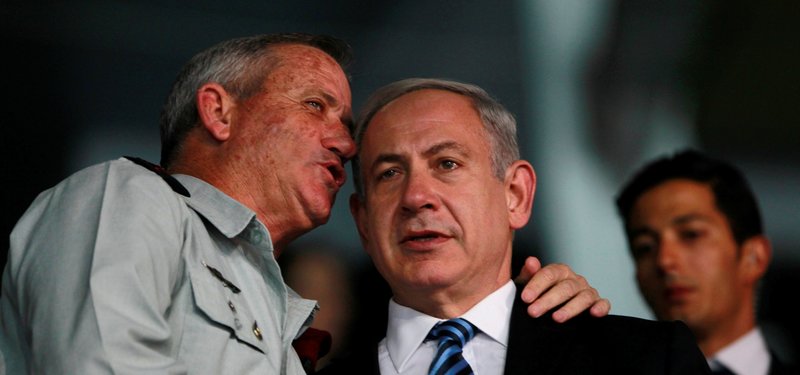
Benny Gantz rejects Netanyahu's offer of Israeli unity government
Israel's weakened PM Netanyahu saw his offer on Thursday for a coalition with his strongest political rival, Benny Gantz, swiftly rebuffed after failing to secure a governing majority in a tight election. Blue and White party emerged from the second round of voting this year slightly ahead of Netanyahu's Likud, but also short of enough supporters in the 120-member parliament for a ruling bloc.
- Middle East
- Reuters
- Published Date: 06:25 | 19 September 2019
- Modified Date: 08:34 | 19 September 2019
The centrist party of Israeli election challenger Benny Gantz rejected on Thursday an offer by Prime Minister Benjamin Netanyahu to join forces in a governing coalition under the incumbent.
"We will not enter a coalition led by Netanyahu," senior Blue and White leader Moshe Yaalon told reporters at an event attended by Gantz.
"In order to make a unity government you don't come with spin and blocs," centrist Israeli leader Benny Gantz says in response to a call from Prime Minister Benjamin Netanyahu to meet with him."I intend to establish a wide liberal unity government," Gantz says in a statement to the press.
Netanyahu earlier called for a national unity government with his right-wing Likud party and Gantz's centrist Blue and White party.
The move came after it became clear that the right-wing parties have no majority to form the next Israeli government.
On Wednesday, he met with the leaders of religious right-wing parties Yamina, Shas and United Torah Judaism to negotiate as one bloc.
Netanyahu said it is impossible to form a unity government without a meeting between the two major party leaders."I was disappointed that at this time Benny Gantz still refuses to meet," Netanyahu said.
Israeli election committee is expected to announce the final results Thursday evening.
With 90% of the votes counted, Israel's center-left Blue and White party is projected to win the parliamentary elections with 32 seats, edging ahead of Netanyahu's Likud party at 31 seats.
The Arab bloc (Israeli Arabs) was able to win 13 seats.
The right-wing Yisrael Beiteinu party of former Defense Minister Avigdor Lieberman bagged nine seats.
Voter turnout stood at 63.1%, according to the election committee.
Israel held its second general elections this year, due to Netanyahu's failure to form a government after the previous poll. Observers expect there may be a third round of elections if the crisis continues.

